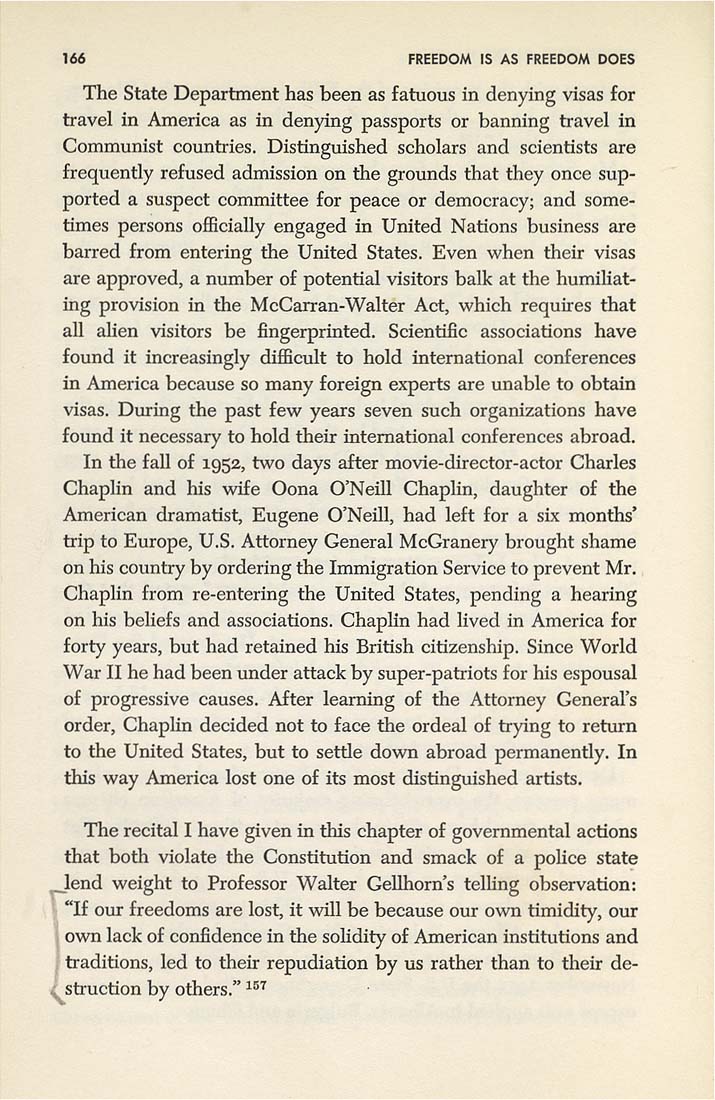FREEDOM IS AS FREEDOM DOES
The State Department has been as fatuous in denying visas for
tiavel in America as in denying passports or banning travel in
Communist countiies. Distinguished scholars and scientists are
frequently refused admission on the grounds that they once sup¬
ported a suspect committee for peace or democracy; and some¬
times persons officially engaged in United Nations business are
barred from entering the United States. Even when their visas
are approved, a number of potential visitors balk at the humiliat¬
ing provision in the McCarran-Walter Act, which requires that
aU alien visitors be fingerprinted. Scientific associations have
found it increasingly difficult to hold international conferences
in America because so many foreign experts are unable to obtain
visas. During the past few years seven such organizations have
found it necessary to hold their international conferences abroad.
In the fall of 1952, two days after movie-director-actor Charles
Chaplin and his wffe Oona O'Neill Chaplin, daughter of the
American dramatist, Eugene O'Neill, had left for a six months'
tiip to Europe, U.S. Attorney General McGranery brought shame
on his country by ordering the Immigration Service to prevent Mr.
Chaphn from re-entering the United States, pending a hearing
on his beliefs and associations. Chaphn Had lived in America for
forty years, but had retained his British citizenship. Since World
War II he had been under attack by super-patriots for his espousal
of progressive causes. After learning of the Attorney General's
order, Chaplin decided not to face the ordeal of trying to return
to the United States, but to settie down abroad permanently. In
this way America lost one of its most distinguished artists.
The recital I have given in this chapter of governmental actions
that both violate the Constitution and smack of a police state
lend weight to Professor Walter Gellhorn's telling observation:
\ "If our freedoms are lost, it wfll be because our own timidity, our
iown lack of confidence in the soHdity of American institutions and
tiaditions, led to their repudiation by us rather than to their de¬
stiuetion by others." ^^"^
|








